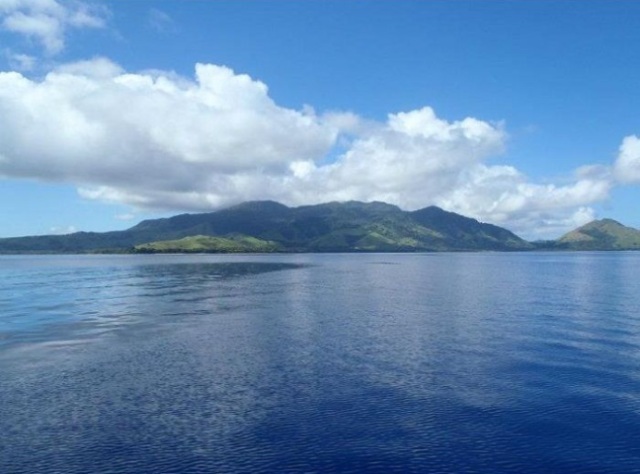Fiji is an archipelago comprising of over three hundred islands. Check out some interesting & fun facts about Fiji.
Facts About Fiji
Fiji is an island nation, situated in the South Pacific Ocean. The country is an archipelago of hundreds of islands, out of which only a few are inhabited. In 1643, Dutch explorer Abel Tasman, who was on his voyage to Australia and New Zealand, sighted one of Fiji’s biggest islands, Vanua Levu, but he did not land. The main island of Fiji is known as Viti Levu which is also the most populated. The island country was a British colony for almost a century and attained independence in 1970. The main occupation of the people of Fiji is agriculture. Though Fiji is a small country, it has several interesting facts to unveil which are extremely amusing and surprising. Here in this article, we have encompassed some of the most interesting facts about Fiji ranging from its culture, cuisine, people, and language to geography. Read on and come across some interesting and fun fact pertaining to the Island nation of Fiji.

Image: Frontierofficial@flickr
Fast Facts
Area: 18,274 km2
Capital: Suva
Population: 868,406 (2011 census)
Currency: Fijian dollar
Official Languages: English, Fijian, Fiji Hindi
Independence Day: 10 October
Calling Code: 679
Type Of Government: Parliamentary-republic run by military-appointed government.
Interesting & Fun Facts About Fiji
- After being a British colony for almost hundred years, Fiji gained independence in the year 1970 on the 10th of October and became a republic on 7th of October, 1987.
- The country consists of an archipelago of over 300 islands with Viti Levu and Vanua Levu being the two major land masses where majority of the population lives.
- A major part of Fiji’s population consists of Indian indentured laborers who were brought to Fiji from eastern Uttar Pradesh, Bihar, North-West Frontier as well as south Indian states including Andhra and Tamil Nadu to work in the sugarcane industry. Thus Fiji is a linguistically diverse country where many Indian dialects can be heard even today.
- The capital of Fiji is Suva and its currency is Fijian Dollar, which still bears an image of the Queen of England. The country is a parliamentary republic which is run by a military appointed government.
- Fiji islands have white sandy beaches, which are an outcome of natural grinding of dead coral.
- The highest mountain of the country is Mt. Tomanivi, which is around 4300 feet high.
- Fiji is situated on the 180° meridian, which is also known as the International Dateline. On the island of Tavueni, there is a place where one can stand with one foot in today day and the other one in yesterday.
- For about a century, Fiji was a British colony but in 1970, the state acquired its independence and became a republic in 1987.
- Despite being a small Fiji has comparatively large armed forces, and the country has been active participant in numerous major UN peacekeeping missions all around the world.
- When considering the land mass of Fiji, it is only slightly less than that of New Jersey with around 849,000 people inhabiting 105 islands.
- Fiji is home to ‘Great Astrolabe Reef’ and its land consists of coral reefs spread across 4,000 square miles.
- Though the country has 28 airports in total, only four of them have concrete run ways.
- Fijian, English and Hindustani are the three official languages of Fiji and they greet others by saying ‘Bula’ which means ‘welcome or cheers’.
- Generally, Fiji has a good literacy rate with about 94% which is due to the fact that education is compulsory and free of cost for all until the age of sixteen.
- In the islands of Fiji, one will not be able to spot poisonous snakes as there are only harmless aboriginal snakes found here.
- Kava is a popular peppery drink here wherein a mild intoxicant is added to provide relief from pain.
- The economy of the state reached stability during the 1960s and 1970s, but later the GDP dropped drastically in 1980s. Tourism industry and sugar export is the backbone of the economy of Fiji.
- Since this state is situated in the South Pacific, the country enjoys a pleasant tropical climate all throughout the year and attracts hordes of tourists.
See also
More from iloveindia.com
- Home Remedies | Ayurveda | Vastu | Yoga | Feng Shui | Tattoos | Fitness | Garden | Nutrition | Parenting | Bikes | Cars | Baby Care | Indian Weddings | Festivals | Party ideas | Horoscope 2015 | Pets | Finance | Figures of Speech | Hotels in India : Delhi | Hyderabad | Chennai | Mumbai | Kolkata | Bangalore | Ahmedabad | Jaipur
- Contact Us Careers Disclaimer Privacy Policy Advertise With Us Lifestyle Sitemap Copyright iloveindia.com. All Rights Reserved.







